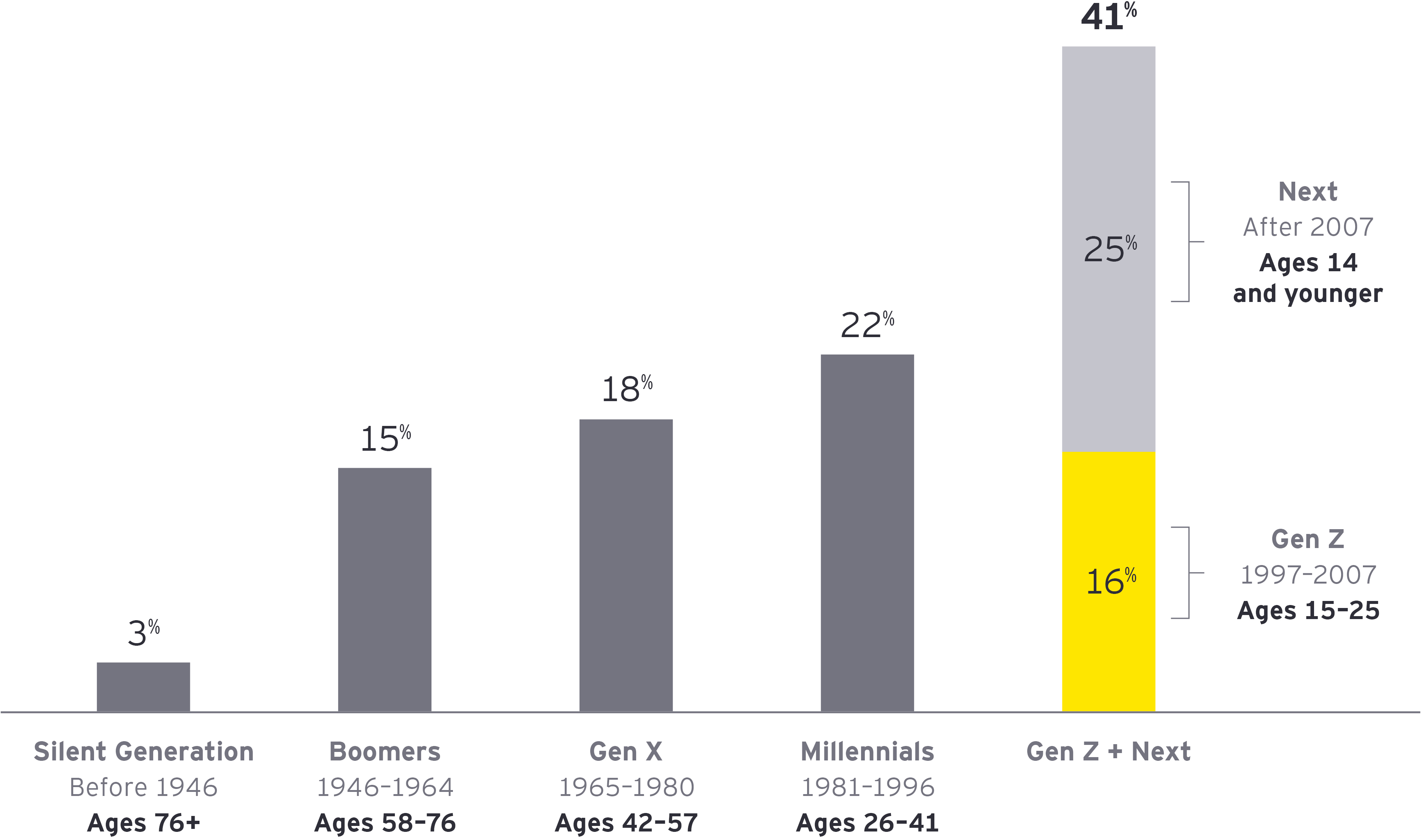Three unique Gen Z behaviors
How this generation of digital natives see the world and interact with it is quite different from those currently in business leadership roles. While the differences manifest in a variety of ways, Gen Z is noteworthy because its members demonstrate three unique behaviors.
1. Combining physical and virtual realities.
While past generations make strong distinctions between physical and virtual realities, Gen Z intuitively live in both realms without a sense of silos. Their virtual digital identity is fully intertwined with their daily life. This applies to how they work, shop and socialize. Indeed, their virtual lives are lived through social media and gaming, but also increasingly through education and work. For Gen Z, virtual relationships formed via a screen are real relationships.
Much of Gen Z’s mental and social health lies in their ability to freely connect (not necessarily in person) with others and maintain healthy relationships with friends, family and colleagues. Gen Z’s reliance on digital channels to interact, meet and connect with others is completely natural for them. To them, technology is not exciting or innovative. It is their way of life. If email was the default communication for Gen X and texting the go-to for millennials, Gen Z’s primary communication channel is social media (e.g., Snap, TikTok, Instagram). They recognize some of the negatives of social media, but still very much value its ability to help them create real, meaningful connections.
2. Seeking authenticity through transparency.
Gen Z also prioritizes and craves authenticity. After an era of fake news and filtered photos projecting the “perfect life,” Gen Z is over it. They want truth, and they want it now. Authenticity ranks as Gen Z’s most important value, with 92% saying being true to oneself was very or extremely important. This ranked ahead of spending time on things that will help their future, being independent, changing the world, and being rich or famous. They feel it is difficult to accomplish anything else if not first true to themselves. For Gen Z, authenticity comes from transparency and openness. Born into a society where scandal, social injustice and inequities have become commonplace, Gen Z is largely untrusting of people, institutions and the world around them. About two-thirds of Gen Z in five countries surveyed agreed that you “can’t be too careful in dealing with people.” Being open and candid with this generation will be key to earning their trust in the long term as consumers and employees.
3. Taking a pragmatic approach to wellness and mental health.
Stress, anxiety and depression were already increasing at alarming rates among Gen Z pre-pandemic, and now are reaching crisis levels. In fact, 42% of Gen Z said they were usually or always depressed during the COVID-19 pandemic. Gen Z has been raised in a time when there is an open dialogue around mental health. They have overcome the stigma around mental health that still plagues older generations, because to them it is a matter of survival, not a luxury or quest for self-actualization. Gen Z is self-aware and looks for support more than prior generations. Because many within their generation are consumed with stress and the motivation to succeed, they can have a hard time “turning off” and will seek outlets to decompress and rejuvenate.
How Gen Z is already impacting companies
Whether viewed as future consumers or employees (or both), the noteworthy aspects of Gen Z behaviors and expectations discussed above are impacting companies today in critical ways.


